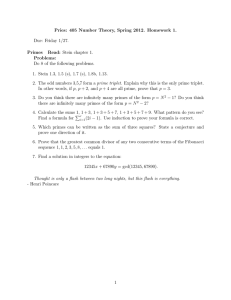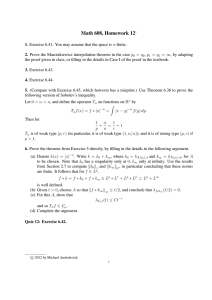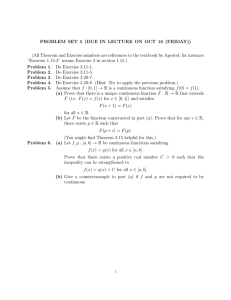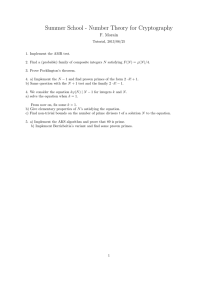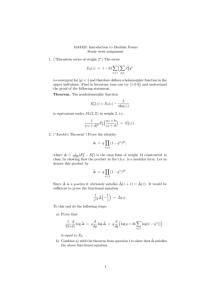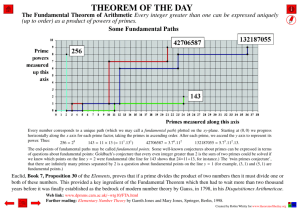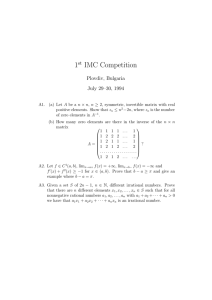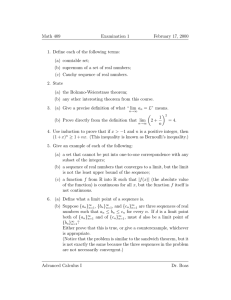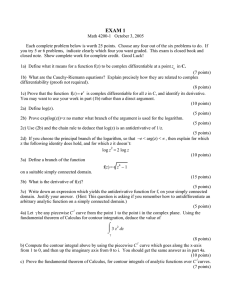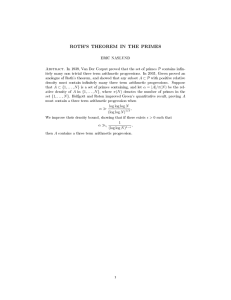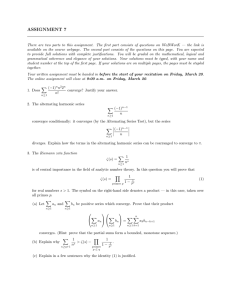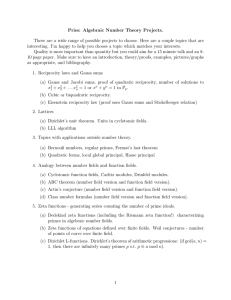Mathematics 539 – Exercises # 5 Estimates of sums over primes
advertisement
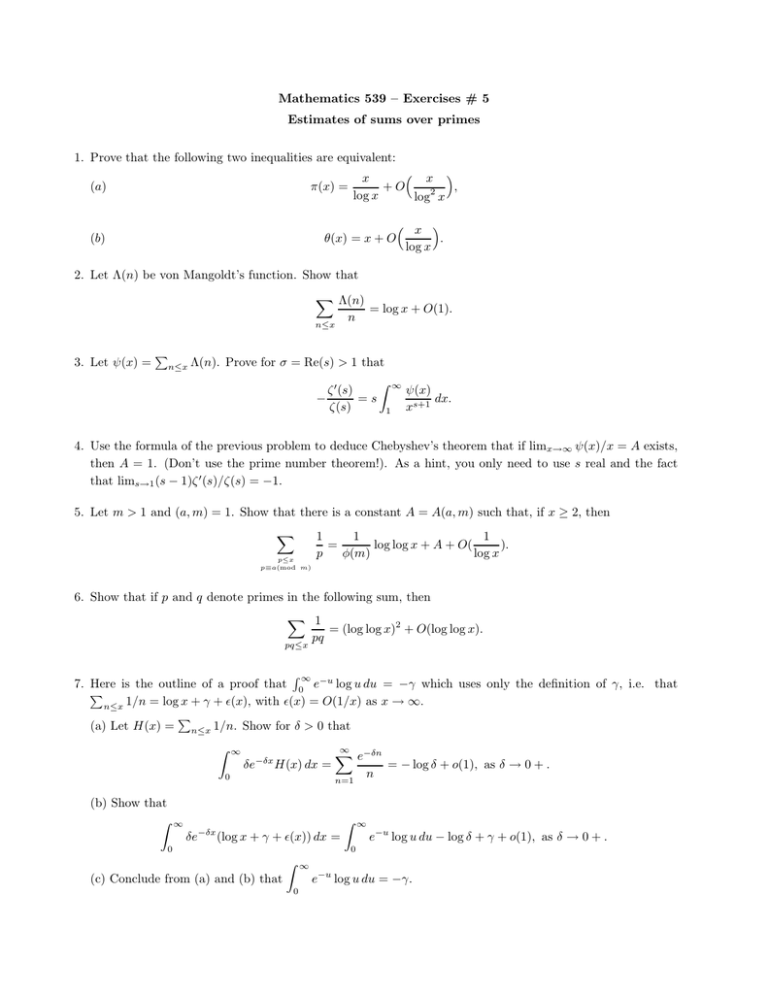
Mathematics 539 – Exercises # 5 Estimates of sums over primes 1. Prove that the following two inequalities are equivalent: (a) x x , +O log x log2 x π(x) = (b) θ(x) = x + O x . log x 2. Let Λ(n) be von Mangoldt’s function. Show that X Λ(n) = log x + O(1). n n≤x 3. Let ψ(x) = P n≤x Λ(n). Prove for σ = Re(s) > 1 that ζ 0 (s) =s − ζ(s) Z 1 ∞ ψ(x) dx. xs+1 4. Use the formula of the previous problem to deduce Chebyshev’s theorem that if limx→∞ ψ(x)/x = A exists, then A = 1. (Don’t use the prime number theorem!). As a hint, you only need to use s real and the fact that lims→1 (s − 1)ζ 0 (s)/ζ(s) = −1. 5. Let m > 1 and (a, m) = 1. Show that there is a constant A = A(a, m) such that, if x ≥ 2, then X p≤x p≡a(mod m) 1 1 1 = log log x + A + O( ). p φ(m) log x 6. Show that if p and q denote primes in the following sum, then X 1 = (log log x)2 + O(log log x). pq pq≤x R∞ 7. Here is the outline of a proof that 0 e−u log u du = −γ which uses only the definition of γ, i.e. that P n≤x 1/n = log x + γ + (x), with (x) = O(1/x) as x → ∞. P (a) Let H(x) = n≤x 1/n. Show for δ > 0 that Z ∞ δe−δx H(x) dx = 0 (b) Show that Z ∞ ∞ X e−δn = − log δ + o(1), as δ → 0 + . n n=1 δe−δx (log x + γ + (x)) dx = 0 Z (c) Conclude from (a) and (b) that 0 Z ∞ e−u log u du − log δ + γ + o(1), as δ → 0 + . 0 ∞ e−u log u du = −γ.
